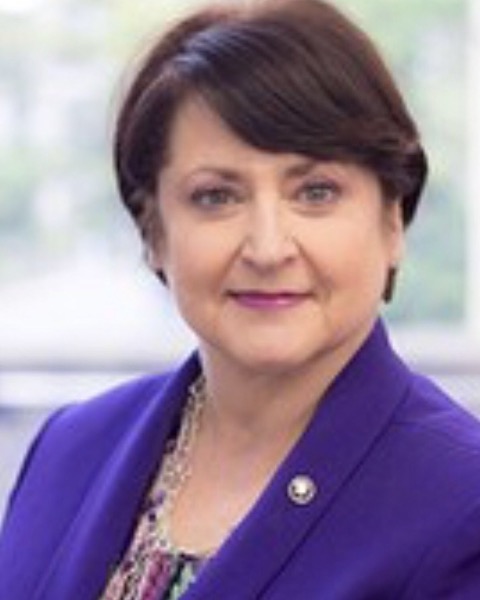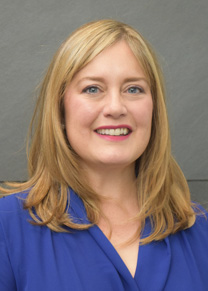An Interprofessional Approach to Holistic Resident-Centered End-of-Life Care
1.00 CME / 1.00 CMD Management / 1.00 MOC
This session will present the development and evaluation of an EBP practice guideline for an interprofessional approach across four end-of-life care domains: (1) ethnocentric spiritual well-being, (2) mental wellbeing, (3) symptom management, and (4) value-based goals of care. The Iowa Model for the Development of Evidence-Based Practice guided the development of the practice guideline and a two-phase evaluation plan was developed. A PALTC expert panel evaluated six domains of rigor for the clinical practice guideline using the Appraisal of Guidelines for Research and Evaluation (AGREE) II instrument to establish face and content validity. (87.2%). The Modified Practitioner Feedback Questionnaire (MPFQ; α = .889) was completed by 22 PALTC professionals with a 92.7% aggregate approval rate.
Presenters
 Candace Harrington, PhD, is an Assistant Professor and holds the Trilogy, Signature, & Elmcroft Gerontology Nurse Practitioner Professorship at the University of Louisville School of Nursing. She teaches PhD and family and adult gerontology primary care nurse practitioner students in the Doctor of Nursing Practice program at the University of Louisville School of Nursing. She is the President Elect of the Phi Kappa Phi Chapter 50 at the University of Louisville.
Candace Harrington, PhD, is an Assistant Professor and holds the Trilogy, Signature, & Elmcroft Gerontology Nurse Practitioner Professorship at the University of Louisville School of Nursing. She teaches PhD and family and adult gerontology primary care nurse practitioner students in the Doctor of Nursing Practice program at the University of Louisville School of Nursing. She is the President Elect of the Phi Kappa Phi Chapter 50 at the University of Louisville.
Andrew Aschbacher, DNP, BSN, FNP-C, RN, is a dually prepared FNP / Adult Gero NP. He was a 3-year recipient of the United States Air Force Health Professions Scholarship Program and has been practicing as an FNP with the U.S. Air Force following completion of his DNP program at the University of Louisville.
 Angela Leinenbach, DNP, is an Assistant Professor at the University of Louisville School of Nursing in Louisville, Kentucky. She teaches in the undergraduate and graduate nursing programs.
Angela Leinenbach, DNP, is an Assistant Professor at the University of Louisville School of Nursing in Louisville, Kentucky. She teaches in the undergraduate and graduate nursing programs.
Learning Objectives
- Identify strategies to overcome barriers to holistic ethnocentric care across diverse populations in the PALTC setting.
- Discuss how to apply the best evidence for value-based ethnocentric end-of-life care in the PALTC setting.
- Explain the value of using a four-domain approach to end-of-life care for diverse populations.
Credit Information
Activity Created 3/2022
Credits Available Until 3/2025
Credit Statements:
CME: AMDA – The Society for Post-Acute and Long-Term Care Medicine designates this enduring material for a maximum of 1.0 AMA PRA Category 1 Credit(s)TM. Physicians should only claim credit commensurate with the extent of their participation in the activity.
AMDA – The Society for Post-Acute and Long-Term Care Medicine for Post-Acute and Long-Term Care Medicine is accredited by the Accreditation Council for Continuing Medical Education (ACCME) to provide continuing medical education for physicians.
CMD: This self-study activity has been pre-approved by the American Board of Post-Acute and Long-Term Care Medicine (ABPLM) for a total of 1.0 management hours toward certification or recertification as a Certified Medical Director (CMD) in post-acute and long-term care medicine. The CMD program is administered by the ABPLM. Each physician should claim only those hours of credit actually spent on the activity.
ABIM Maintenance of Certification (MOC): Successful completion of this CME activity, which includes participation in the evaluation component, enables the participant to earn up to 1.0 Medical Knowledge MOC points and patient safety credit in the American Board of Internal Medicine’s (ABIM) Maintenance of Certification (MOC) program.
Participants will earn MOC points equivalent to the amount of CME credits claimed for the activity. It is the CME activity provider’s responsibility to submit participant completion information to ACCME for the purpose of granting ABIM MOC credit.
Visit the Continuing Education page for information on if and how you can claim credit/hours for AMDA’s education.
Disclosure Information:
The Society requires the disclosure of all speaker/faculty/planner’s relevant financial relationships; presence of off-label use of a device or medication; and discussion of any experimental, new or evolving topic prior to each accredited education activity.
If the learner perceives any bias toward a commercial product or service, advocation of unscientific approaches to diagnosis or therapy, or recommendation, treatment, or manners of practicing healthcare that are determined to have risks or dangers that outweigh the benefits or are known to be ineffective in the treatment of patients please report this to the Society’s staff.
All relevant financial relationships have been identified, mitigated, and resolved.
- The following AMDA Education Committee members have financial relationships to report: Diane Sanders-Cepeda, DO, CMD — UHC E&I Retiree Solutions: Full-Time Employee; all others have no relationships with ineligible companies.
- The speakers have no relevant financial relationships.
- AMDA staff have no relationships with ineligible companies.